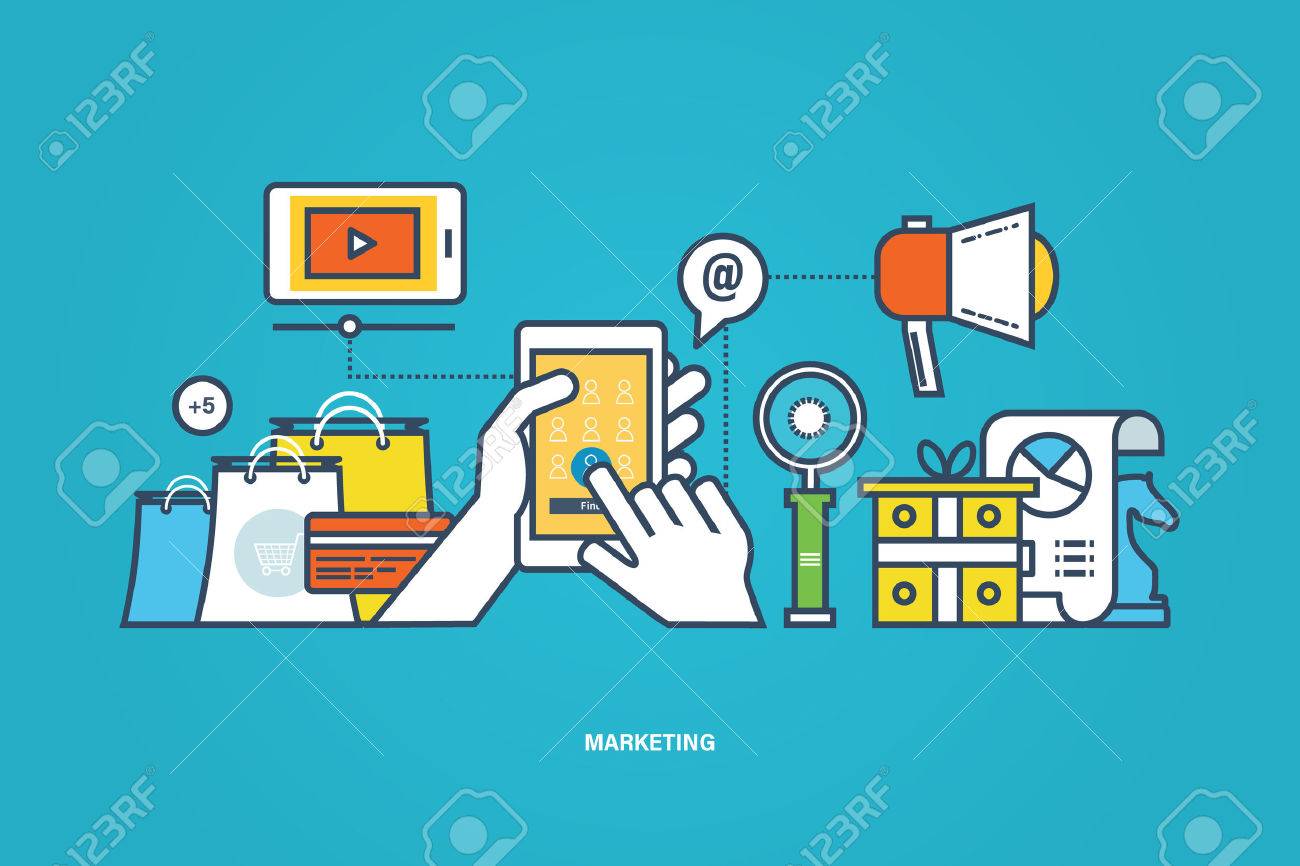Are you a small business owner looking to make the most of your online marketing efforts? With the right online marketing tools, you can take your small business to the next level. From website analytics tools to email marketing platforms, there are a variety of online marketing tools available to small business owners that can help you build an effective online presence. In this article, we will discuss some of the best online marketing tools for small businesses. With these tools, you can create a strong online presence, reach your target audience, and maximize your return on investment.
The Five Essential Online Marketing Tools for Small Businesses
As a small business, it can be difficult to stay ahead of the competition when it comes to online marketing. With the right tools, however, you can make sure that your business is well-positioned to take advantage of the digital revolution. Here are five essential online marketing tools for small businesses:
1. Social Media Management Tools: Social media is a powerful tool for small businesses. With the right social media management tools, you can track your performance, engage with customers, and create content that resonates with your target audience.
2. Email Marketing Platforms: Email marketing is one of the most cost-effective ways to reach your target audience and build relationships with them. With an email marketing platform, you can create and send emails to your customers that are tailored to their interests.
3. Search Engine Optimization (SEO): SEO is a must-have for any small business looking to maximize their online presence. With the right SEO strategies, you can ensure that your website is properly optimized for search engines and that your content is visible to the right people.
4. Content Management Systems (CMS): A content management system (CMS) is a critical tool for any small business looking to stay ahead of the competition. With a CMS, you can easily create, edit, and publish content that is engaging and relevant to your target audience.
5. Online Advertising Platforms: Online advertising platforms like Google Ads and Facebook Ads are great tools for small businesses looking to reach their target audience. With these platforms, you can create targeted campaigns that are tailored to your goals and budget.
These five essential online marketing tools are essential for any small business looking to maximize their online presence and stay ahead of the competition. With the right tools, you can ensure that your business is well-positioned to take advantage of the digital revolution.
a. Search Engine Optimization (SEO)
Search Engine Optimization (SEO) is an important online marketing tool for small businesses. SEO helps small businesses increase their visibility online, attract more customers, and boost their profits. By increasing the visibility of a website, small businesses can reach more potential customers and increase their online presence.
SEO involves optimizing a website for the search engine algorithms so that it appears higher in search engine results when customers search for relevant keywords. This includes optimizing website content, images, and other web elements to make them more search engine friendly. Additionally, SEO involves creating backlinks to the website from other websites, which helps the website rank higher in the search engine results.
By implementing SEO, small businesses can benefit from increased website traffic, improved brand visibility, and better customer engagement. SEO can also help small businesses build trust with customers and establish credibility.
Overall, SEO is an effective online marketing tool for small businesses and can help them achieve their goals. By investing in SEO, small businesses can increase their visibility online and attract more customers.
b. Social Media Platforms
Social media platforms have been an invaluable tool for small businesses in recent years, allowing them to reach a broad customer base and effectively promote their products or services. With the right strategy, these platforms can be used to build brand loyalty, engage customers with exciting content, and generate leads that can be converted into sales.
There are a variety of social media platforms available for small businesses to use. Popular platforms include Facebook, Instagram, Twitter, YouTube, and Pinterest. Each platform offers its own unique set of features and benefits, making it important for businesses to understand which platform will work best for their needs.
Facebook is the most popular platform for small businesses, with over two billion monthly active users. It’s a great platform for businesses to build relationships with their customers, share photos and videos, and run targeted ads.
Instagram is a great platform for small businesses looking to engage their customers with visuals. It’s also a great platform for businesses to share stories and connect with their customer base.
Twitter is a great platform for businesses to connect with their customers in real-time and to build relationships with influencers. It’s also a great platform for businesses to share news and updates.
YouTube is a powerful platform for businesses to create engaging videos to promote their products or services. It’s also a great platform for businesses to build brand loyalty.
Pinterest is a great platform for businesses to share visuals and inspire their customers. It’s also a great platform for businesses to showcase their products and services.
Social media platforms can be an incredibly useful tool for small businesses looking to reach a broad customer base and promote their products or services. With the right strategy, these platforms can help businesses build relationships, engage customers, and generate leads.
c. Email Marketing
Email marketing is one of the most effective online marketing tools for small business. It is an inexpensive way to reach out to customers and build relationships. It also allows businesses to communicate with their customers, increase brand awareness and drive more sales.
Email marketing is easy to set up and manage. It is also highly customizable, allowing businesses to create messages that are tailored to their target customers. Plus, email marketing campaigns can be easily tracked and measured, so businesses can measure the success of their campaigns and make any necessary adjustments.
Email marketing can be used to promote products, educate customers, announce new services and offers, and more. It is a great way to stay connected and engage with customers while also driving sales. With email marketing, businesses can reach customers in a highly personal way and build long-term relationships.
d. Paid Advertising
Paid advertising is one of the most powerful online marketing tools for small businesses. It allows businesses to target specific audiences with their ads and reach them more effectively than many other marketing strategies. It is an important part of any business’s overall digital marketing strategy.
Paid advertising can include search engine advertising, display advertising, social media advertising, and other forms of digital advertising. It can be used to target a specific audience, and can be tailored to fit the goals of a business. It’s a great way to get more visitors to your website, increase conversions, boost brand awareness, and more.
Paid advertising is cost-effective and can be used to reach a wide range of audiences. It’s important to understand how to use it to get the most out of it. Knowing your target audience, creating effective ads, and tracking the performance of your campaigns are all important components of successful paid advertising.
By utilizing paid advertising, small businesses can take advantage of the many benefits it provides. It’s an effective way to reach target audiences and increase conversions. With the right strategy and implementation, it can help small businesses get the most out of their digital marketing efforts.
e. Analytics
Analytics is an invaluable tool for small businesses when it comes to online marketing. With the right analytics tools, businesses can track customer behavior, track website visits, measure the success of their campaigns, and more. By using analytics, businesses can gain insights into their target audience and optimize their online marketing strategies to maximize ROI.
Analytics tools provide businesses with data-driven insights that can be used to make informed decisions and measure the success of their online marketing efforts. Analytics can help businesses identify which marketing channels are performing best, measure the effectiveness of their campaigns, and understand their customers’ behavior and preferences.
Analytics also helps businesses to optimize their website for better user experience and engagement. By analyzing user behavior, businesses can identify areas where traffic is dropping off or where customers are not engaging. They can then adjust their website design and content to better engage customers and increase website visits and conversions.
Analytics also helps businesses to identify new opportunities for their online marketing efforts. For example, businesses can use analytics to identify trends in customer behavior and target those trends with more relevant content. This can help businesses to reach a wider audience and increase their online visibility.
Analytics is a powerful tool that can help small businesses to improve their online marketing efforts and generate more leads and sales. By leveraging the right analytics tools and data, businesses can gain valuable insights that can help them optimize their campaigns and drive more conversions.
How to Get Started with Online Marketing Tools for Small Businesses
Online marketing tools for small businesses can help entrepreneurs maximize their visibility and increase their customer base. With the right set of tools, small businesses can gain an edge over their competitors and be successful in their marketing endeavors.
The first step in getting started with online marketing tools for small businesses is to familiarize yourself with the different types of tools available. There are many different options, from website design and optimization tools to search engine optimization and content marketing tools. Each type of tool can help your business in different ways. For example, website design tools can help you create a visually appealing website, while content marketing tools can help you create content that will help increase website traffic.
Once you are familiar with the different types of tools available, you can begin to look for the ones that best fit your needs and budget. Consider both the features and the cost of each tool before making a decision. Additionally, it is important to research the company offering the tool and read reviews to ensure that it is a reputable business.
Once you have identified the online marketing tools for small businesses that best fit your needs, the next step is to implement them into your marketing strategy. This will involve making sure that the tools are properly integrated into your website and that they are used in the most effective way possible. Additionally, you should test the tools to ensure they are working properly.
By using the right online marketing tools for small businesses, entrepreneurs can make their business more visible and increase their customer base. With the proper research and implementation, these tools can help small businesses stand out from the competition and be successful in their marketing endeavors.
Tips for Maximizing the Effectiveness of Online Marketing Tools for Small Businesses

Online marketing tools are essential for small businesses to reach their customers and promote their products or services. However, it can be challenging to know how to use these tools effectively. Here are some tips for maximizing the effectiveness of online marketing tools for small businesses:
1. Research and Understand Your Audience: Knowing who your target audience is and what they’re looking for will help you create content and use online marketing tools that are tailored to their interests.
2. Use Automation Tools: Automation tools such as email marketing software can help you save time and reach more people with your messages.
3. Utilize SEO: Search engine optimization (SEO) can help you increase your website’s visibility and reach more potential customers.
4. Monitor and Analyze Your Results: Keep track of your online marketing efforts to see what works and what doesn’t. Use analytics tools to measure the success of your campaigns.
By following these tips, you can make sure that your online marketing efforts are as effective as possible. With the right strategies and tools, you can reach more potential customers and grow your small business.
In conclusion, online marketing tools for small businesses are essential in today’s digital world. They help small businesses reach more customers, build their brand, and increase their sales. These tools enable them to measure their performance, test different strategies, and optimize their campaigns. Some of the must-have tools for small businesses include search engine optimization, social media platforms, email marketing, website analytics, and content marketing. All of these tools can help small businesses acquire new customers, build relationships with existing ones, and improve their overall digital presence.












